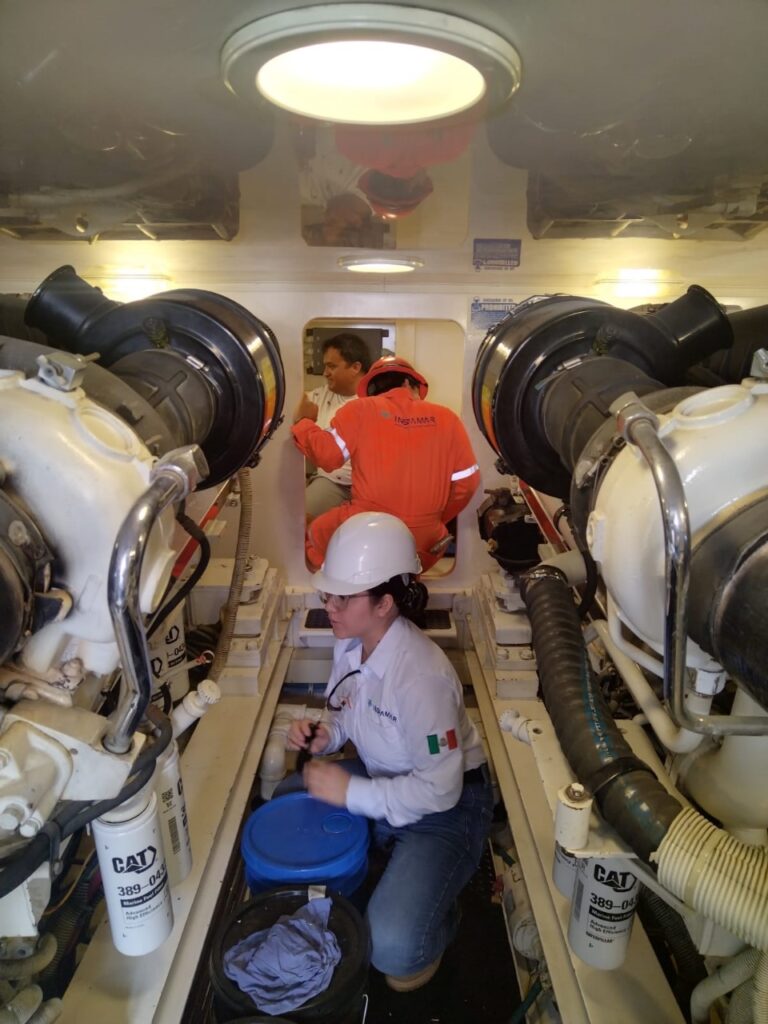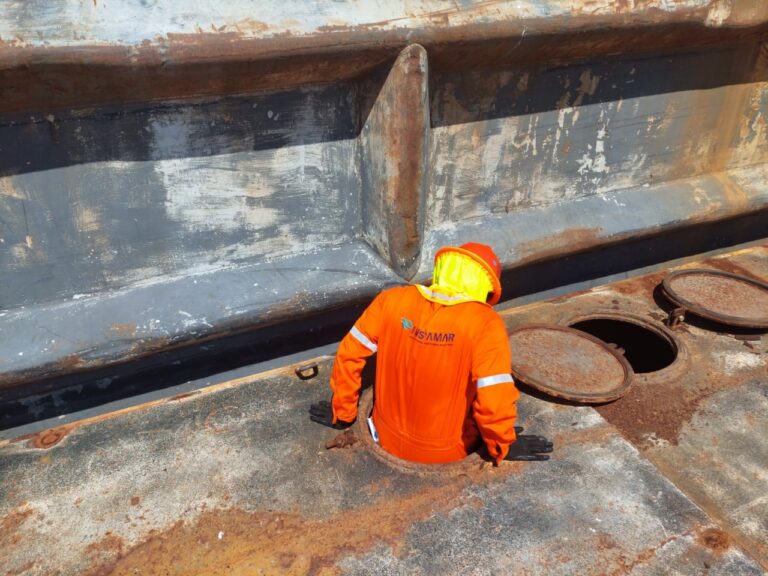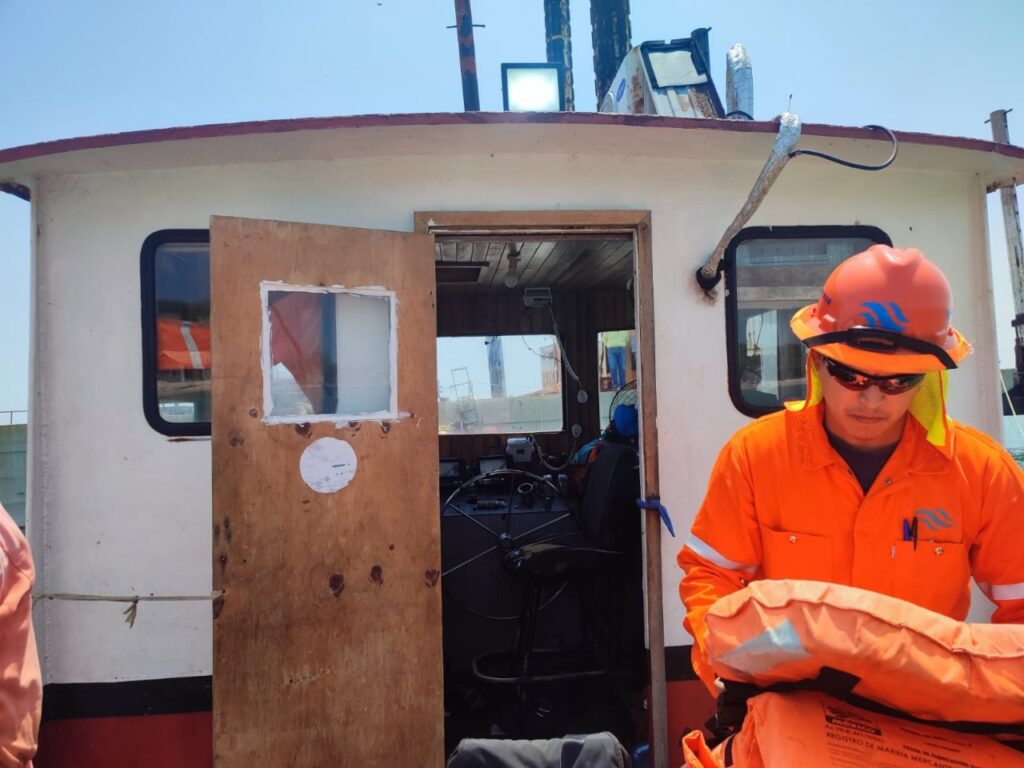
Inspamar – 2025
What is the International Code of Stability for Ships without Damage 2008?
What is the IS Code 2008?
The International Code of Stability without Damage, 2008 (IS CODE 2008), presents mandatory and recommended stability criteria and other measures to ensure the safety of ships and minimize risks to the vessels, onboard personnel, and the environment.
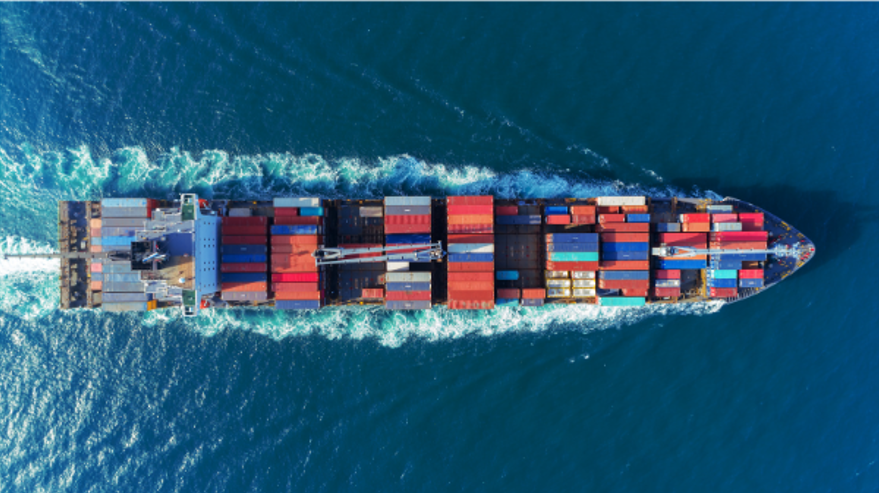
The code contains stability criteria without damage for the following types of vessels and other naval artifacts with a length of 24 meters or more:
1) Cargo ships;
2) Cargo ships carrying wooden decks;
3) Passenger ships;
4) Fishing vessels;
5) Ships for special purposes;
6) Offshore supply vessels;
7) Mobile offshore drilling units;
8) Barges;
Cargo ships carrying containers on deck and container ships.
How is the IS Code 2008 structured?
It is divided into two parts:
Part A: Mandatory Criteria:
It details the fundamental stability criteria for different types of vessels, such as cargo and passenger ships, including general requirements and loading conditions. Divided into three (3) chapters:
Chapter 1: General matters.
Chapter 2: General criteria.
Chapter 3: Special criteria for certain types of vessels.

Part B: Recommendations applicable to certain types of vessels and other guidelines.
It encompasses criteria not included in Part A, offering additional recommendations to improve vessel stability, such as safe operational practices, cargo and ballast management, and continuous stability assessment. It consists of eight (8) chapters:
Chapter 1: General matters.
Chapter 2: Recommended design criteria for certain types of vessels.
Chapter 3: Guidelines for preparing stability information.
Chapter 4: Stability calculations performed by stability instruments.
Chapter 5: Operational provisions against capsizing.
Chapter 6: Considerations on icing.
Chapter 7: Considerations on watertight integrity and weather tightness.
Chapter 8: Determination of stability parameters.
Importance of the IS Code 2008
In the Mexican Maritime Industry
The Mexican government, being a signatory to the agreements,
SOLAS 74/88, MARPOL 73/78, and Load Lines LLC 66/88, it has the
the responsibility to comply with the IS Code 2008. This is why
it has undertaken the task of creating a regulatory framework to
its implementation for both vessels/naval artifacts
that are subject to the aforementioned conventions, this
as well as to vessels/naval artifacts over the
twelve meters in length with a deck.
We can see this reflected in the following instruments and
actions:
Regulation of the Navigation and Maritime Commerce Law
This regulation includes specific provisions arising from
the IS Code 2008 for regulation and oversight in Mexico.
Mexican Official Standards (NOM)
There are specific regulations related to this. For example: PROYNOM-007-SEMAR-2023, Inclination test for
vessels.
Ship Stability Booklet / Logbook
A document approved by the Administration, where the details are outlined
the stability characteristics and the procedures for
maintaining the stability of the vessel under various conditions
loading conditions, demonstrating that the vessel complies with
the stability criteria under different operational scenarios.
Inspections and Audits
The administration or recognized organizations conduct
various inspections on vessels/naval artifacts,
to verify compliance with national regulations and
international regulations, regarding navigation safety, the
human life at sea, and pollution prevention.
maritime. This is necessary for the issuance, renewal, or revalidation of
the applicable statutory certificates.
IS Code 2008
The IS Code 2008 includes fundamental principles such as general precautions against capsizing (criteria related to metacentric height (GM) and righting arm curves (GZ)); the meteorological criterion (wind and intense balance criterion); the effect of free surfaces and icing; and watertight integrity.
It covers operational aspects such as information for the Captain, including stability and how to operate the logbooks with instructions and operational procedures in adverse weather conditions.
Here are some reference illustrations used with the IS Code 2008:
A ILLUSTRATION:
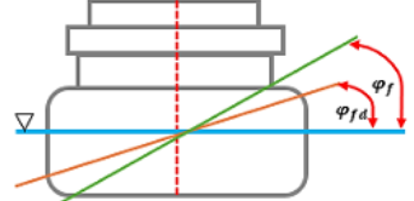
B ILLUSTRATION
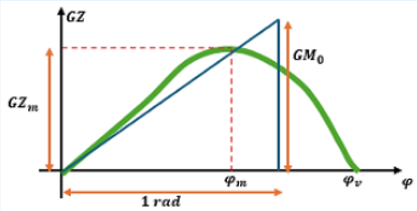
Illustrations A and B show an explanation of the righting arms and heeling angles.
C ILLUSTRATION:
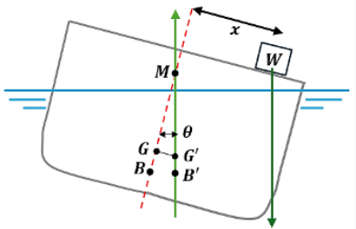
Representation of the heeling produced by the movement of heeling weights in an inclination test.
Background of the IS Code 2008
A.749(18) RESOLUTION: "International Stability Code for all types of vessels governed by IMO instruments," amended by resolution MSC.75(69). Its goal was to update the Code and establish internationally mandatory provisions on stability without damage.
MSC.269(85) y MSC.270(85) Resolutions: Amendments were adopted to the SOLAS 1974 Convention and the 1988 Load Lines Protocol, making Part A of the IS Code 2008 mandatory.
Entry into force: The IS Code 2008 came into effect on July 1, 2010.
Subsequent amendments:
MSC.267(85): General amendments.
MSC.319(89) Resolution: Amendments to Part B, related to the stability criteria of the MODU Code.
MSC.398(95) Resolution: Amendments to Part B regarding the margin for ice formation.
MSC.413(97) and MSC.415(97) Resolutions: Amendments to the introduction and Part A of the IS Code 2008.
International Maritime Organization (IMO)
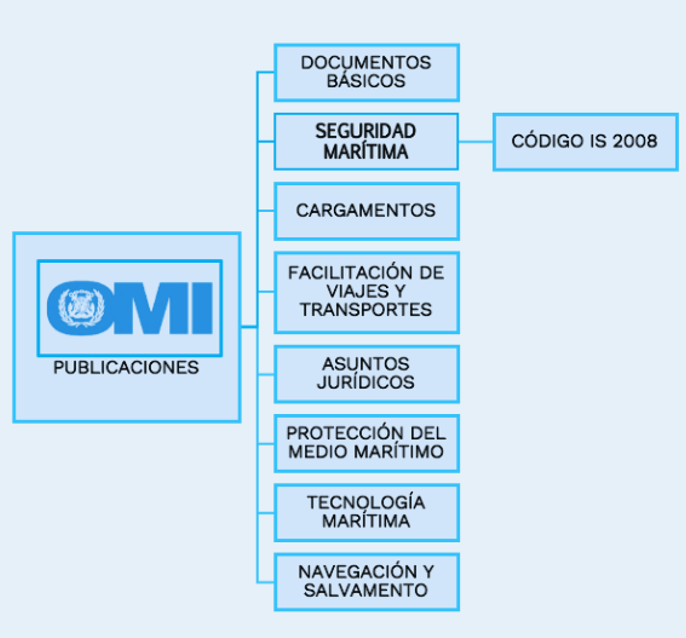
The IMO (International Maritime Organization) provides the global maritime community with numerous official instruments, such as conventions, codes, regulations, recommendations, and guidelines, developed by the Organization. Accordingly, on December 4, 2008, through Resolution MSC.267(85), the Maritime Safety Committee (MSC) adopted the International Code on Intact Stability, 2008 (IS Code 2008). This published instrument is of interest to administrations, ship manufacturers, shipping companies, educational institutions, and other stakeholders involved in intact stability criteria.




